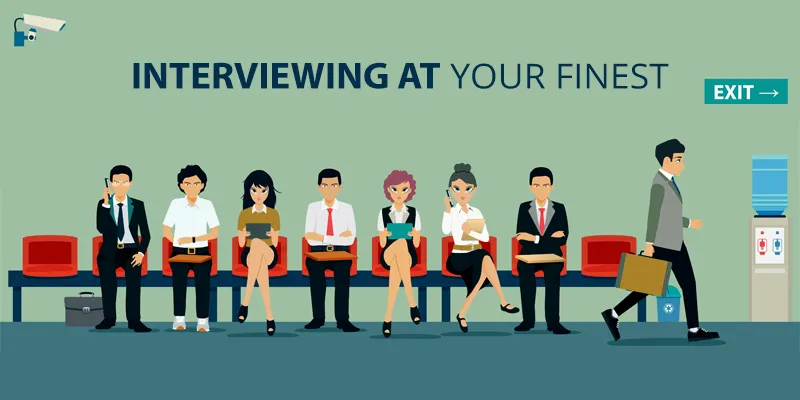These five phrases make you sound rude at a job interview
There are a lot of times when we come across as rude even when we didn’t intend to sound that way. Reasons could be many – but frustrations and everyday stress usually top the list. On the other hand, there are people who don't’ need any reason to come across as disrespectful — it’s their natural tendency or maybe just their tone that results in others perceiving them as rude or flippant.
Did it ever occur to you that this could be one of the reasons you weren’t considered for the job you thought could be your big professional break?

Image : shutterstock
It’s possible that you are unaware of your tendency to sound condescending in everyday conversations, or perhaps you do know, but aren’t sure about the exact words that get you in trouble. In either case, the following list should give you a better idea of what to say and what to avoid in order to improve your chances of landing the job.
- Actually, the point is …
You are at an interview, where the interviewer's job is to evaluate you on the basis of your answers. The last thing you want to do is sound condescending at a job interview. When you start your sentence with “actually”, you sound like you’re correcting the other person.
What you can say instead
“I understand what you’re saying, but I’d like to suggest or add….”.
Or
“It’s quite surprising that you came up with that, but as per my experience…..”
Or
If you wish to keep it short, you can say things like – “good point,” “I see,” or “makes sense.”
- What’s your company all about?
Err…you should have done your research before you showed up for the interview — that’s going to be your interviewer’s first thought when you put that question out there. But that’s not really the point. The point is even if you wish to know more about the company and its functioning, there are better ways to ask without sounding authoritative.
What you can say instead
“I went through the company's website and scanned through the information provided, but would like to know more about the internal functioning.”
Or
“Would you care to share some valuable insights about the company?”
Or
“Before we close on this, I just wanted to know a bit more about the organisation.”
- Sorry, I didn’t get that!
Really? ‘Sorry’ is used in a number of ways, and if you don’t have control over your tone of voice, this frequently used word could make you come across as impudent.
Don’t believe me?
Let’s do a quick exercise: record the given sentence in two or three expressions, listen to all the versions, and see the impact. Were you able to jot down the difference? At the time of a job interview, it’s easy to neglect tone and be misunderstood in the process. Starting something with a sharp “sorry” will definitely come across as rude, or if not, at least alarming for the listener.
What you can say instead
“I would like to apologise for not being able to understand your point, but would you please elaborate it a bit more for better clarity?”
Or
“I could be wrong, and correct me if I am, but as per my understanding….”
- I don’t have weaknesses
Okay then! If this is what you truly believe, you must be a god, because as a human it’s impossible not to have weaknesses. Patently, yours is not being able to communicate your doubts in a non-condescending way. Always be humble at interviews.
Tip: even if you share a couple of weaknesses, do not forget to enlighten the interviewer about your efforts to diminish the chinks in your armour. If you absolutely cannot abstain from talking about how faultless you are, there are still some ways of getting your point across without sounding obnoxious.
What you can say instead:
“I invest a good amount of time in working on my weaknesses and there’s nothing that can hold me back from delivering my best.”
Or
“I don’t really focus on weaknesses and that’s one of my biggest strengths. Even if I have a few, like binge-eating (just to add humour), I’m sure they won’t affect my performance at work.”
- Excuse me, I’m not sure what that’s supposed to mean
Excused, and you can try for another job somewhere else — that’s how most HRs will deal with you if you take that tone with them. Even if you think the interviewer said something that’s not professionally feasible or even ethical, there’s a way to communicate your concern. Sometimes, being diplomatic works wonders, and maybe that’s the trait your interviewer is looking for. Hence, the test!
What you can say instead
“I’d request you to elaborate upon that for more clarity.”
Or
“Is there a better way to understand what you are offering?”
In the end, it’s not what you say; it’s how to say it. Practise these tips and you should be able to communicate in a politer and more convincing manner. You can also go through this list of body language tricks that will drastically improve your chances of nailing the job interview. Best of luck!







